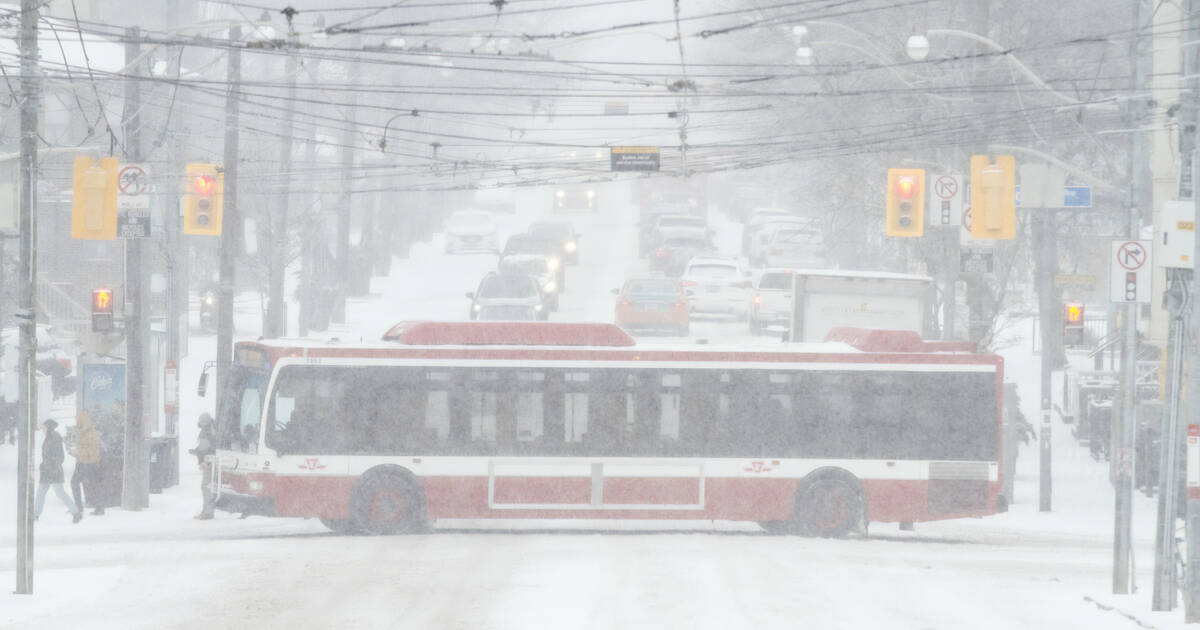
Meteorologists are warning City of Toronto residents and visitors today of "a well organized snow squall" moving into the region — one that promises to wreak havoc on the evening commute.
Environment Canada upgraded its previous special weather statement for Toronto to a "Winter Weather Travel Advisory" early Friday morning, writing in an alert that the "timing of this snowfall may potentially lengthen afternoon commute times significantly."
A snow squall originating from Lake Huron is expected to move into the area late Friday afternoon, affecting a swath of Southern Ontario that encompasses much of the Golden Horseshoe.
"This band will be capable of producing quick accumulations of 2 to 5 cm in an hour along with sudden reductions to visibility in heavy snow," reads EnviroCan's Friday morning advisory. "Travelers are advised to exercise caution and allow extra time to reach their destination."
Long list of road closures today in southern Ontario this morning.🚫 #ONstorm https://t.co/s0VBvOljj4
— Kelly Sonnenburg TWN (@kellysonnenburg) February 28, 2020
The storm will last well into Saturday, according to the Weather Network, bringing with it up to 50 cm of snow in some parts of the region.
"Snow squalls and blowing snow will reduce visibility and could cause life-threatening travel due to sudden whiteout conditions," reads the network's storm centre.
"Confidence is high that intense, prolonged snow squalls will impact parts of southern Ontario, primarily areas south and east of Georgian Bay and Lake Huron."
Weather Network meteorologist Dr. Doug Gillham warns that snowfall rates will be near 5 cm per hour with total whiteouts likely on Friday afternoon.
Persistant snow squall crossing the 400 and moving through northern parts of the GTA right now but expecting it to swing west towards Toronto by this eve. bringing bursts of heavy snow and reduced visibility. #onstorm pic.twitter.com/2qoSofhBDP
— Ross Hull (@Ross_Hull) February 28, 2020
This intense snow squall will "extend along the 401/407 corridor for a couple of hours" this afternoon before reaching Toronto's downtown core just in time for rush hour.
The band will hit the city sometime between 5 and 7 p.m., if weather officials are correct in their predictions.
"Travel could be impossible at times and drivers are urged to turn on lights and maintain a safe following distance if visibility is poor on the roads," writes the Weather Network.
"Environment Canada recommends that individuals protect themselves from the cold and the wind by staying indoors or under some type of shelter, such as a car if you are on the road during worsening conditions."
by Lauren O'Neil via blogTO

No comments:
Post a Comment